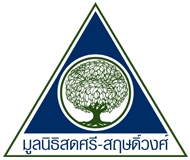5. Shore C. Virgin births and sterile debates: anthropology and the reproductive technologies. Current Anthropology. 1992; 33: 295-315.
6. Stotland NL. Psychiatric issues related to infertility, reproductive, technologies, and abortion. Primary care: clinics in office practice. 2002;29: 13-26
7. Beckman LJ, Harvey SM. Current reproductive Technologies: increased access and choice?. J Social Issues. 2005;61:1-20.
8. China internet information center[ homepage on the internet]. Gestational surrogacy banned in China. Available from : http//:www.china.org.cn/english/2001/jun/15215.htm
9. Schenker JG. Assisted reproductive practice:religious perspectives. Reproductive Biomedicine online 2005;10;310-9.
10. Serour G I. Bioethics in infertility management in the muslim world[homepage on the internet] Gyrus Medical. Available from: http://www.obgyn.net/eago/art12.htm
11. Brisden PR, Appleton TC, Murray E et al. Treatment by in vitro fertilization with surrogacy: experience of one British centre. BMJ. 1994; 320: 924-9.
12. Baor L, Blickstein I. En Route to an ‘‘Instant Family’’:psychosocial considerations. Obstet Gynecol Clin N Am. 2005;32 :127–39.
13. Chen, Ting-Hsiu ; Chang, Sheng-Ping ; Tsai, Chia-Fen ; Juang, Kai-Dih .Prevalence of depressive and anxiety disorders in an assisted reproductive technique clinic Human Reproduction 2004;19: 2313-8.
14. Fassino S, Piero A, Boggio S, Piccioni V, Garzaro L. Anxiety, depression and anger suppression in infertile couples: a controlled study. Hum Reprod 2002;17:2986-94.
15. Guerra D, Liobera A, Veiga A, Barri PN. Psychaitric morbidity in couples attending a fertility service. Hum Reprod 1998;13: 733-6.
16. Matsubayashi H, Hosaka T, Izumi S, Suzuki T, Makino T. Emotional distress of infertile woman in Japan. Hum Reprod. 2001;16:966-9.
17. Dyer SJ, Abrahams N, Mokoena NE, Lombard CJ, van der Spuy ZM. Psychological distress among womean suffering from couple infertility in South Africa: a quantitative assessment. Hum Repord ; In press 2005.
18. Baslington H. The social organization of surrogacy: relinquishing a baby and the role of payment in the psychological detachment process.J. Health Psychol. 2002;7:57–71.
19. Ciccarelli JC. The surrogate mother: A post-birth follow-up study. Unpublished Doctoral Dissertation. Los Angeles: California School of Professional Psychology1997.
20. Jadva V, Murray C, Lycett E, MacCallum F, Golombok S. Surrogacy:the experience of surrogate mothers. Hum Reprod 2003;18:2196-204.
21. Dickens BM. Ethical issues arising from the use of assisted reproductive technologies. In. Vayena E, Rowe PJ, Griffin PD. Editors. Medical, Ethical and Social Aspects of Assisted Reproduction. Report of a meeting held at WHO Headquarters in Geneva, Switzerland, 2001 September 17 –21; 333-48.
22. Blyth, E. “I wanted to be interesting. I wanted to be able to say ‘I’ve done something with my life’”: Interviews with surrogate mothers in Britain. J Reprod Infant Psychol. 1994;12 :189–98.
23. van den Akker O. The importance of a genetic link in mothers commissioning a surrogate baby in UK. Hum Reprod 2000;15:1849-55.
24. Klinepeter CB. Surrogacy: parent’s story. Psychol Rep 2002;91:201-19.
25. Kleinpeter CH, Hohman MM Surrogate motherhood: personality traits and satisfaction with service providers Psychol Rep. 2000 Dec;87(3 Pt 1):957-70.
26. Fischer S, Gillman I. Surrogate motherhood: attachment, attitudes and social support. Psychiatry. 1991 Feb;54:13-20.
27. van den Akker O. Organizational selection and assessment of woman entering a surrogacy agreement in the UK. Hum Reprod 1999;14:262-6.
28. Levine HB. Gestational surrogacy: nature and culture in kinship. Ethnology. 2003;42 :173-85.
29. ไสววรรณ ไผ่ประเสริฐ . การศึกษาการเจริญเติบโต และพัฒนาการของเด็กที่เกิดจากการปฏิสนธิโดยวิธี ICSI (บทคัดย่อจากวิทยานิพนธ์แพทย์ประจำบ้าน ภาควิชากุมารเวชศาสตร์) Journal: ว.กุมารเวชศาสตร์ (Thai J Pediatr) Vol,No,Page: 40,1 ( ม.ค.-มี.ค. 2544 ) , 61-2.
30. Golombok S, MacCallum F. Practitioner review: outcomes for parents and children following non-traditional conception: what do clinicians need to know?. J Child Psychol Psychiatry. 2003 44;303–15.
31. Golombok S, Brewaeys A, Giavazzi MT, Gerra D, MacCallum F, Rust J. The European study of assisted reproduction families: the transition to adolescence. Hum Reprod. 2002;17:830-40.
32. Golombok S, MacCallum F, Murray C, Lycett E , Jadva V. Surrogacy families: parental functioning, parent–child relationships and children’s psychological development at age 2. J Child Psychol Psychiatry;In press 2005.
33. van den Akker, O.B.A. (2001a). Adoption in the age of reproductive technology. Journal of Reproductive and Infant Psychology 2004;19:147–59.
34. Braverman AM, Corson SL. A comparison of oocyte donor’s and gestational carriers/surrogaates’ attittudes towards third party reproduction. J Assissted Reprod and Genetics. 2002;19:462-9.
35. Patterson CJ. Lesbian and gay parenting[monograph on the internet]. Washington DC: American psychological association;1995[cited June2005]. Available from: http://www.apa.org/pi/parent.html
36. Paige R U, editors. Resolution on sexual orientation, parents and children. Proceedings of the American Psychological Association 2004 July 28 & 30; Honolulu, HI; 2005.
37. Perrin EC. The Committee on psychosocial aspects of child and family health. American Academy of Pediatrics.coparent or second-parent adoption by same –sex parents .Pediatrics 2002;109:341-4.
38. Huggins SL. A comparative study of self-esteem of adolescent children of divorced lesbian mothers and divorced heterosexual mothers. J Homosex. 1989;18(1-2):123-35.
39. Golombok S, Murray C, Brisden P, Abdalla H. Social versus biological parenting: family functioning and the socioemotional development of children conceived by egg or sperm donation. J. Child Psychol Psychiatry.1999;40:519-27.
40. Steril F.Informing offspring of their conception by gamete donation.[ monograph on the internet] In . Ethics Committee of the American Society for Reproductive Medicine American Society for Reproductive Medicine. Ethical considerations of assisted reproductive technology. 2004 .Washington DC; Available from: http://www.asrm.org/Media/Ethics/ethicsmain.html
41. Boivin J et al. Guidelines for counselling in infertility: outline version. Hum Reprod. 2001;16:1301-4.
42. Rimm AA, Katayama AC, Diaz M, Katayama KP. A meta-analysis of controlled studies comparing major malformation rates in IVF and ICSI infants with naturally conceived children. J Assist Reprod Genet. 2004 ;21:437-43.
43. Hansen M, Kurinczuk JJ, Bower C, Webb S. The risk of major birth defects after intracytoplasmic sperm injection and in vitro fertilization. N Engl J Med. 2002; 346: 725-730.
44. American College of Obstetricians and Gynecologists Committee on Ethics 2003-2004 .Surrogate motherhood. In. Ethics in Obstetrics and Gynecology.2nd ed. American College of Obstetricians and Gynecologists 2004. Available from http://www.acog.org/from_home/publications/ethics/ethics050.pdf
45. Steinbock B. Payment for Egg Donation and Surrogacy. Mount Sinai Journal of Medicine.2004; 71:255-65.
46. Ciccarelli J, Caiccarelli J. The legal aspects of parental rights in assisted reproductive technology. J Social Issues. 2005;61:127-37.
